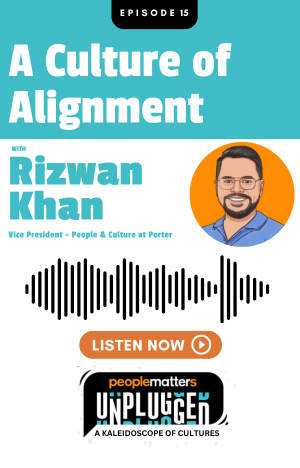A guide to revisit goals and redefine performance management

The last few years have seen the world moving and evolving at a very rapid pace. Societies and organizations were gearing up for a change, led by the geo-political landscape, regulatory changes, stakeholder expectations, technological innovations etc. And, then the pandemic hit, forcing people to adapt even more quickly than they thought they could.
It’s not business as usual in the current environment for multiple industries, but it is still imperative to ensure that operations are running smoothly, while maintaining the company’s financial health. The goals of a company may have changed and those need to be relooked. To reach these revised goals, it is important to communicate it down to employees and with it, to redefine performance parameters. This will help organizations in creating an inclusive and resilient environment to motivate employees and enhance employee productivity.
Done well, performance management can drive performance improvements and organization-wide results.
Performance Management processes need to be adapted to suit the current changes in the organizational environment.
The focus should be on the continuous performance cycle, in which goals are reviewed and adjusted in real time.
For effective performance management leading to engaged employees, here are some key points to note:
Goals & Milestones
Goals and milestones need to be revisited at an organizational level as they would have shifted during this pandemic. Goals impact output and results are aligned to large business strategies. These goals need to be broken down into smaller, attainable and measurable milestones to ensure the team is always on track to achieve the larger picture. In the current stressed business environment, goals and milestone will be dynamic and organizational teams need to work towards making sure that they are aware of it.
Re-align for clarity and relevance
Clarity of goals are key for employees to perform. Periodic review of goals will help employees stay relevant and aligned with their individual goals.
Currently, there are multiple new activities which were not envisaged, and there are some prior tasks which have become redundant.
Opportunities are available for managers to revisit these goals along with employees and adjust them on a real time basis.
Use SMART methodology
You can never go wrong with SMART (Specific, Measurable, Achievable, Relevant and Timely) methodology for setting goals. SMART helps you communicate what you are going to do, how you are going to do it, when you are going to do it, and expectations on how the output will be measured. A critical evaluation using SMART methodology can help managers provide employees with the right work tools and environment to perform.
Performance Conversations
Periodic performance conversations - formal as well as informal - enhance effectiveness. Informal sessions help the managers understand the barriers or challenges faced by employees and help in overcoming those challenges. Remember no two employees are the same - everyone comes with their expectations and baggage. It is for the manager to help and support them to be productive.
As we go through the pandemic, people are going through real life issues like travelling to the site, low internet bandwidth in the remote work environment, caregiving responsibilities, mental health challenges etc. It is an opportunity for organizations to re-focus and re-align their employees to the shared vision of the company and boost their morale.
Focus on development and feedback
Increased coaching and development will improve individual and organizational performance. A performance coaching culture will focus on the overall development aspects of the employees.
Competencies like collaboration, empathy, inclusion, adaptability should be integrated into development discussions to ensure well-rounded development.
Frequent feedback ensures priorities are aligned, ensuring productivity and engagement. This is an opportunity too for the managers to receive feedback from their team members on how they manage their team’s performance. The focus needs to be on continuous improvement, fostering collaboration and building enhanced relationships between managers and employees.
No Ratings
Many organizations have moved from a rating system to a no-rating system. Performance evaluations with ratings could be a big challenge today as all employees might not be completely productive in the traditional sense, due to the current crisis. Instituting more progressive practices will help tide over the situation and keep employees motivated to perform.
Motivation
Motivated employees positively impact organizational performance. Motivation levels of employees differ based on their aspirations in life and career, which could have shifted now based on their personal or family challenges due to the pandemic. The ability of the organization and manager to connect with the employees, empathize, offer mental health support - availability of professional psychological counselling and stress control programs for resilience building of employees and their family members, medical insurance support and above all learning & development assistance will influence employees positively to create an engaged organization.
Rewards & Recognition
In terms of rewards & recognition during this pandemic, the shift is from one-off cash rewards to recognition and appreciation. Timely recognition and appreciation of employees, even for a small win is a greater motivator.
Living the core values of the company, customer centric behaviors, reaching out to co-workers and supporting them, walking that extra mile to service the customer etc. all need to be recognized and celebrated.
Peer recognition programs will enhance the appreciation and empathy towards each other’s challenges. Special appreciation notes from the leadership, recognition through company communication channels, social media platforms, videos, team meetings, memorable awards are some of the impactful ways to recognize and appreciate the employees.
All said and done, employee performance and reward mechanisms cannot work in isolation, and greatly depend on employee feedback for success. Company feedback mechanisms like employee engagement surveys are a great tool to know if programs are working. These are great reflectors of employee engagement levels, employee productivity and organizational performance.














